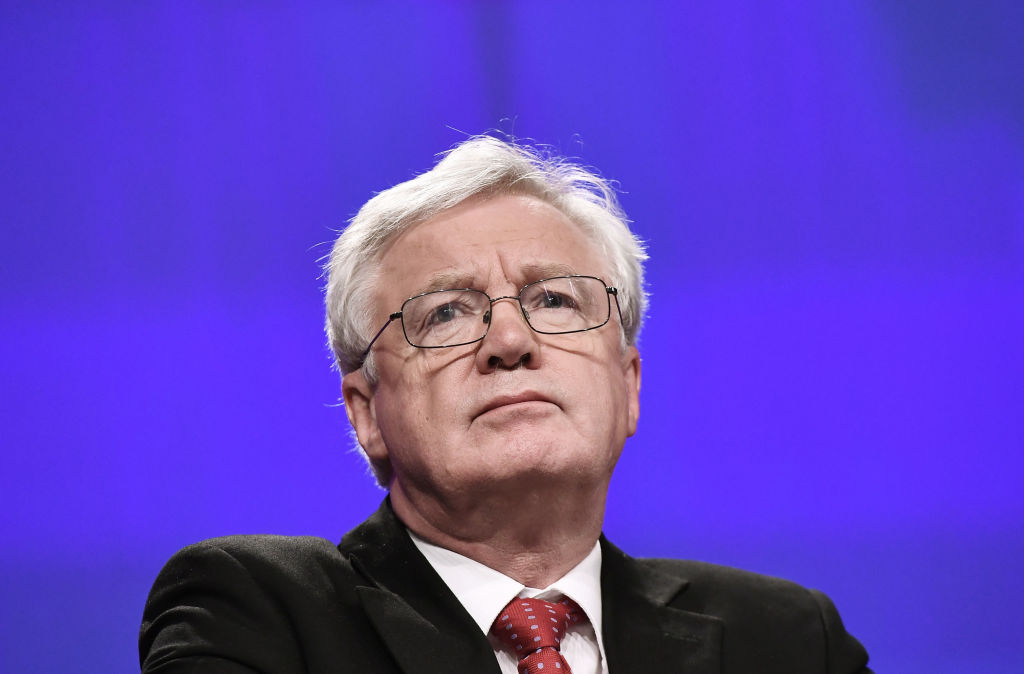David Davis’s revelation that Parliament may not get a vote on a Brexit deal until after Britain has actually left the EU has provoked a flurry of criticism. The Government has been accused of railroading Parliament and treating MPs with ‘contempt’. It’s an ‘undemocratic disgrace’, says Open Britain. Yet Davis is only really stating the obvious that there can’t be a vote on a deal that doesn’t exist. It’s also a simple matter of timing that, under the terms of Article 50, Britain will leave the EU in March 2019 – two years after May pulled the trigger. What isn’t guaranteed – especially given the lack of progress so far – is that a deal will materialise before then, if at all. So it seems something of a moot point to blame the Government for blocking a hypothetical vote on a hypothetical agreement.
Parliament may not vote on a Brexit deal until after Britain leaves EU, David Davis says https://t.co/b7QEPj0Mv1 pic.twitter.com/0Cx3MWCLcp — Bloomberg Brexit (@Brexit) October 25, 2017
There are, of course, plenty of reasons to get angry at ministers for the way in which Brexit is being handled. The timing of Theresa May’s decision to trigger Article 50 is one of them. If she had waited, then it would have been more feasible that a vote would certainly have been held on a deal before Brexit actually happened (Labour don’t make this point because Corbyn wanted to trigger Article 50 immediately). The delay of the Government’s EU withdrawal bill is another reason to be annoyed. This attempt to kick the can down the road seems inspired only by fears over a backbench rebellion. But Davis’s comments today – despite the backlash with which they have been greeted – aren’t proof of a conspiracy to push Parliament out of the process. Ministers have promised a vote on the deal – if there is one. And as Davis said today: ‘It can’t come before we have the deal’. On that point, at least, it’s difficult to see that he isn’t correct – even if that’s a scenario that won’t be popular, particularly among those who hope a rejection of a Brexit deal could eventually mean Britain ends up staying put in the EU.
It seems Davis’s comments fit into a predictable pattern of remarks on Brexit being blown out of proportion. Both sides in the debate are guilty here. Last week, Philip Hammond was accused of pessimism for saying that there was a chance planes might not fly between the UK and EU after Brexit, if no agreement was made. Yes, it was possibly inadvisable for him to make that point, particularly given that it fitted neatly into his portrayal as something of an Eeyore figure. But that didn’t stop him being technically correct: a deal in some form is needed for planes to fly between the UK and the continent. What’s more, Hammond – as with Davis today – was keen to point out that such a scenario was unlikely, even if it was not impossible.
At PMQs, May said she was convinced a deal would be agreed ‘in time for Parliament to have the vote we committed to’. Davis made much the same point earlier, telling MPs that a vote would be held as soon as possible. But it’s difficult to pin the blame on him for pointing out that this might be later, rather than sooner.







Comments